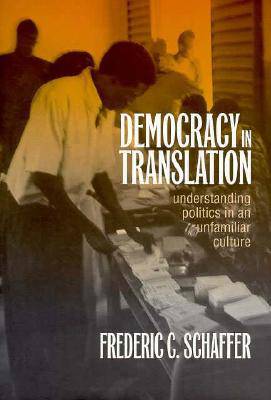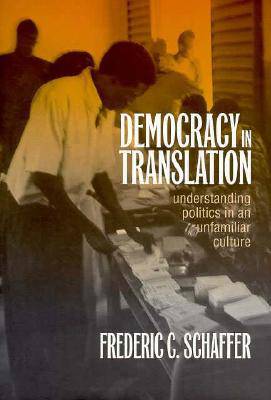
- Afhalen na 1 uur in een winkel met voorraad
- Gratis thuislevering in België vanaf € 30
- Ruim aanbod met 7 miljoen producten
- Afhalen na 1 uur in een winkel met voorraad
- Gratis thuislevering in België vanaf € 30
- Ruim aanbod met 7 miljoen producten
Omschrijving
Frederic C. Schaffer challenges the assumption often made by American scholars that democracy has been achieved in foreign countries when criteria such as free elections are met. Elections, he argues, often have cultural underpinnings that are invisible to outsiders. To examine grassroots understandings of democratic institutions and political concepts, Schaffer conducted fieldwork in Senegal, a mostly Islamic and agrarian country with a long history of electoral politics. Schaffer discovered that ideas of "demokaraasi" held by Wolof-speakers often reflect concerns about collective security. Many Senegalese see voting as less a matter of choosing leaders than of reinforcing community ties that may be called upon in times of crisis.By looking carefully at language, Schaffer demonstrates that institutional arrangements do not necessarily carry the same meaning in different cultural contexts. Democracy in Translation asks how social scientists should investigate the functioning of democratic institutions in cultures dissimilar from their own, and raises larger issues about the nature of democracy, the universality of democratic ideals, and the practice of cross-cultural research.
Specificaties
Betrokkenen
- Auteur(s):
- Uitgeverij:
Inhoud
- Aantal bladzijden:
- 192
- Taal:
- Engels
- Reeks:
Eigenschappen
- Productcode (EAN):
- 9780801433986
- Verschijningsdatum:
- 17/06/1998
- Uitvoering:
- Hardcover
- Formaat:
- Genaaid
- Afmetingen:
- 162 mm x 235 mm
- Gewicht:
- 408 g

Alleen bij Standaard Boekhandel
Beoordelingen
We publiceren alleen reviews die voldoen aan de voorwaarden voor reviews. Bekijk onze voorwaarden voor reviews.











